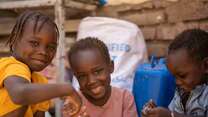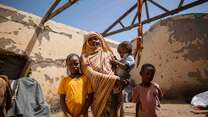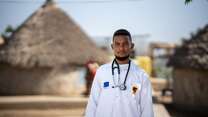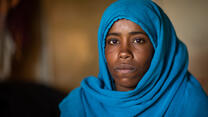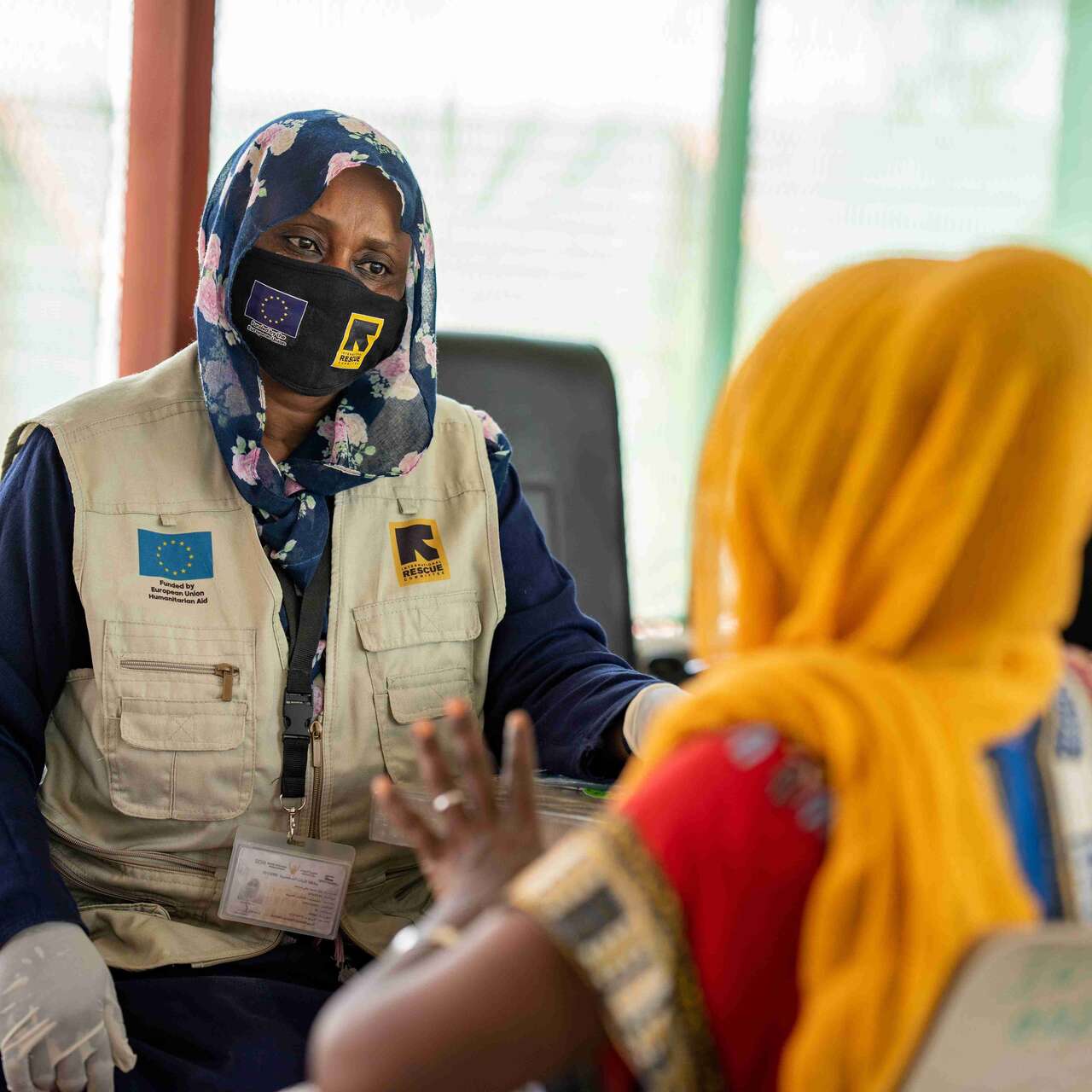
Nearly two years after the conflict in Sudan began in April 2023, women and girls continue to bear the brunt of the crisis. Of the 14.6 million forcibly displaced people, a significant number are women and girls of reproductive age, many of whom have little to no access to essential sexual and reproductive health services or maternal care.
The World Health Organization (WHO) confirmed at least 119 attacks on healthcare facilities between April 2023 and October 2024, though the actual number is likely much higher.
To further complicate the healthcare challenges, many displaced women and girls face gender-based violence (GBV), including child marriage, rape, and sexual violence.
What challenges do Sudanese women and girls face?
Many internally displaced women and girls living in shelters have a critical shortage of reproductive health services since they lack the most basic healthcare resources to address their urgent needs.
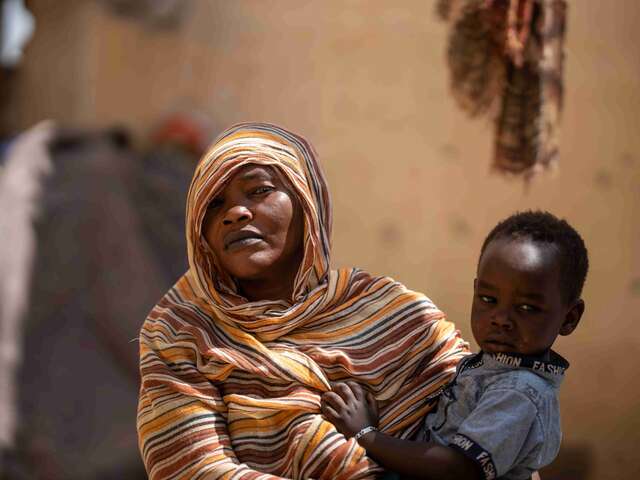
Without proper medical care, women have experienced a rise in miscarriages, while inadequate pregnancy and childbirth care has led to several maternal deaths. Poor newborn care further exacerbates the situation, increasing the rates of maternal and neonatal mortality rates.
Urgent healthcare crisis for women and girls
The UN Women Gender Alert 2024 reveals a stark reality, highlighting that as of August 2024, women and girls make up 5.8 million (54%) of Sudan’s IDPs. Among them, 3 million girls under 18 face heightened protection risks. Compounding the crisis, 1.63 million women and girls of reproductive age urgently need healthcare services.
The commitment of IRC's medical teams to support women and girls
The IRC health team is working tirelessly to ensure women and girls—who are disproportionately affected by the crisis—receive the sexual and reproductive health (SRH) care they need. Many health facilities have been damaged or left understaffed, making access to prenatal care, safe deliveries, and essential medications nearly impossible for thousands. Yet, with funding from the European Union, the International Rescue Committee (IRC) continues to supply and maintain clinics in IDP and refugee camps, like here at the Gedaref camp in eastern Sudan, serving as a critical lifeline for displaced women and girls.

“Although most organisations stopped working, IRC has still been able to provide services during this crisis.”
Zakia Yaqoup, a 43-year-old senior midwife, is one of the dedicated IRC health workers serving in Gedaref camp east of Sudan, through IRC’s EU-funded program launched in 2021.
Knowing the pain of displacement firsthand—she fled with her sons when conflict broke out in 2023—Zakia dedicated herself to caring for women, providing maternity services, family planning, and much-needed support in an increasingly harsh environment.
Every day, she witnesses along with her team the struggles women face since the conflict began. She shares that girls are at constant risk of violence, harassment, abuse, and kidnapping. Some have even been subjected to rape and forced into sex slavery, making safe spaces and support services more critical than ever.
To support women, she works in family planning methods and counseling, as well as antenatal care, post-pregnancy follow-ups, and assisting with deliveries and postnatal care. Additionally, Zakia conducts sessions during pregnancy, providing guidance on health education, personal hygiene, and overall well-being.
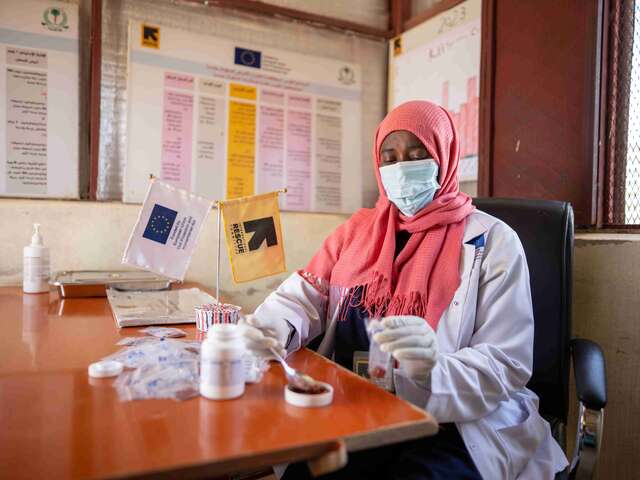
However, the ability of Zakia and her team to work is challenged every day. Even with a steady supply of SRH materials through EU support, long import delays and access constraints within Sudan threaten to disrupt services. Stockouts have been reported in several states due to accessibility issues and the lack of government funding for health services during the conflict. But despite these barriers, the IRC remains unwavering in its mission—adapting, improvising, and pushing forward to ensure no woman or girl is left without care. So far, more than 277,000 people across Sudan have received IRC-supported health services through the EU-funded project, including nearly 17,000 women and girls who have accessed lifesaving sexual and reproductive health care.

The EU-supported health facilities also uphold strong infection prevention and control measures, providing safe spaces equipped with handwashing stations, restrooms, waste management systems, incinerators, and ash pits. Against all odds, the IRC and its dedicated teams continue to stand by Sudan’s women and girls, delivering the care they need when they need it most.
The International Rescue Committee partners with the European Union to provide life-saving support to people caught in conflict and disasters around the world. Our work funded by the EU enables people to survive, recover and rebuild their lives.

